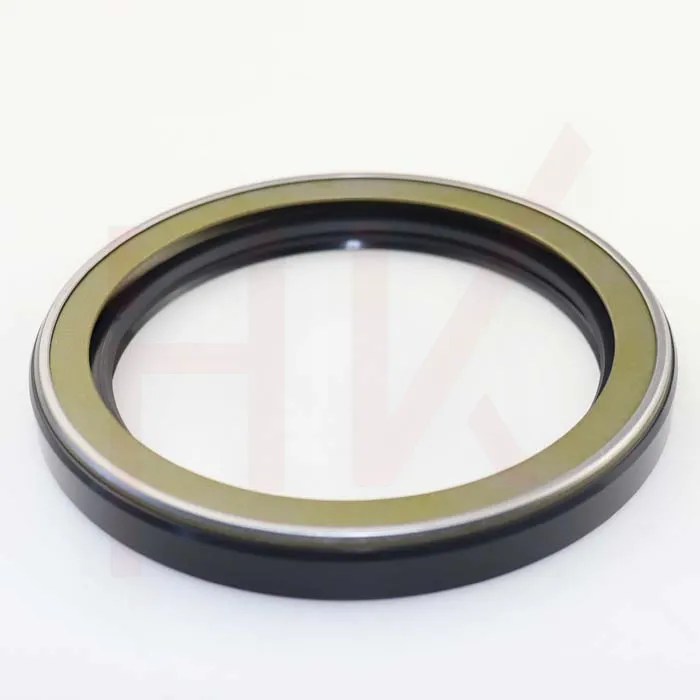Nov . 09, 2024 15:05 Back to list
Hydraulic Motor Oil Seal Types and Applications for Enhanced Performance and Longevity
Understanding Hydraulic Motor Oil Seals Importance, Types, and Maintenance
Hydraulic motors play a crucial role in various industrial applications by converting hydraulic energy into mechanical energy. A critical component that ensures the efficient functioning and longevity of hydraulic motors is the oil seal, which prevents the leakage of hydraulic fluid and protects critical internal components from environmental contaminants. In this article, we will explore the importance of hydraulic motor oil seals, the various types available, and essential maintenance tips to ensure their optimal performance.
The Importance of Oil Seals in Hydraulic Motors
Oil seals serve multiple purposes in hydraulic systems. First and foremost, they act as barriers, preventing oil leaks that could otherwise lead to system inefficiencies or failures. Leaking hydraulic fluid can result in reduced pressure and compromised performance of the hydraulic motor, leading to decreased operational efficiency. Furthermore, if contaminants such as dirt, dust, or water enter the hydraulic system due to poor sealing, they can cause significant damage to internal components, leading to costly repairs and downtime.
Additionally, oil seals maintain the proper hydraulic pressure required for efficient system operation. Maintaining consistent pressure is essential for the smooth functioning of hydraulic motors, as any fluctuations can affect performance and reliability. Thus, oil seals contribute significantly to the overall efficiency and longevity of hydraulic systems.
Types of Hydraulic Motor Oil Seals
Oil seals come in various types and materials, each designed for specific applications and environments. The most common types of hydraulic motor oil seals include
1. Lip Seals These are the most widely used oil seals, featuring a flexible lip that creates a seal against the rotating shaft. Lip seals are effective at keeping hydraulic fluid contained while preventing contaminants from entering.
2. O-Rings O-rings are circular seals that fit into a groove and provide a reliable sealing solution for hydraulic systems. They are made from various materials, such as rubber or silicone, and can accommodate different pressure levels and temperatures.
3. Mechanical Seals These seals are typically used in high-pressure applications and consist of two components that form a seal when pressed together. Mechanical seals are often made from hard materials that can withstand extreme conditions.
4. V-Rings V-rings are unique in that they can be installed on a rotating shaft and provide an axial seal. They are often used in conjunction with lip seals to enhance sealing performance.
hydraulic motor oil seal

The choice of oil seal depends on the specific requirements of the hydraulic motor, including the type of hydraulic fluid used, the temperature range, and operating pressure.
Maintenance Tips for Hydraulic Motor Oil Seals
Proper maintenance of hydraulic motor oil seals is critical for ensuring their longevity and optimal performance. Here are some essential maintenance tips
1. Regular Inspection Routinely inspect oil seals for signs of wear, cracking, or distortion. Early detection of any damage can prevent costly failures and leaks.
2. Monitor Hydraulic Fluid Levels Ensure that hydraulic fluid levels are maintained within the recommended range. Low fluid levels can lead to increased wear on seals and other components.
3. Check for Contaminants Regularly inspect the hydraulic system for contaminants that could compromise oil seal integrity. Use filters and breathers to prevent dirt and moisture from entering the system.
4. Temperature Management Be mindful of operating temperatures. Excessive heat can degrade the material of the oil seal, leading to premature failure. Ensure that the hydraulic system is equipped with temperature regulation mechanisms.
5. Replace Worn Seals Promptly If any oil seal shows signs of wearing out, replace it as soon as possible. Delaying replacements can lead to more significant issues, including system failures and fluid loss.
6. Use Quality Seals Invest in high-quality oil seals from reputable manufacturers. Quality seals are more durable and reliable, reducing the likelihood of leaks and failures.
Conclusion
Hydraulic motor oil seals are vital components that play an essential role in maintaining the efficiency and longevity of hydraulic systems. Understanding the importance of these seals, their types, and proper maintenance practices is crucial for any hydraulic system operator or technician. By ensuring that oil seals are regularly inspected, maintained, and replaced as needed, operators can enhance the performance and reliability of their hydraulic motors, ultimately leading to increased productivity and reduced operational costs.
-
The Trans-formative Journey of Wheel Hub Oil Seals
NewsJun.06,2025
-
Graphene-Enhanced Oil Seals: Revolutionizing High-Pressure Oil Sealing
NewsJun.06,2025
-
Future of Hydraulic Sealing: Advanced Intelligent TCN Oil Seals
NewsJun.06,2025
-
Don’t Let a Broken TCV Oil Seal Ruin Your Day
NewsJun.06,2025
-
Bio-Inspired Dust Seals for Better Sealing Performance
NewsJun.06,2025
-
Biodegradable and Sustainable Hydraulic Seal Materials
NewsJun.06,2025
-
Top Oil Seal Solutions for Your Industrial Needs
NewsMay.22,2025
Products categories
















